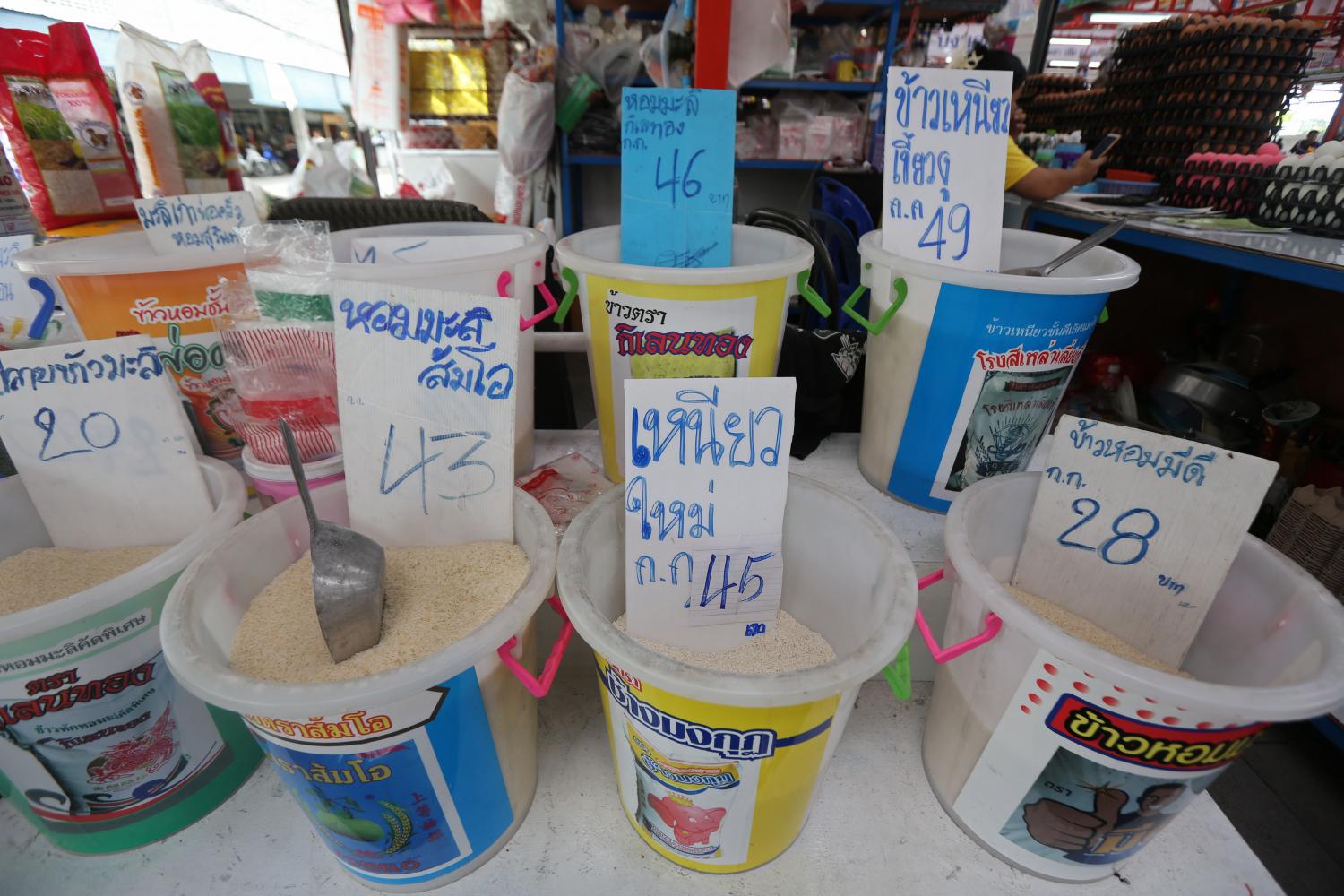
In a move to tackle rising glutinous rice prices, the government has ordered millers, traders and exporters to report their stocks by on Tuesday.
The Commerce Ministry will also call a meeting with millers and packaged rice producers on Wednesday to produce packed glutinous rice at a special price.
Commerce Minister Jurin Laksanawisit said he already ordered a nationwide inspection of glutinous rice to check hoarding and price gouging.
Millers, traders and exporters who refuse to submit their stock reports or submit inaccurate stocks will be subject to up to five years in jail or a fine of not more than 5,000 baht, or both.
For hoarding or price gouging, violators are subject to seven years of imprisonment, a fine of up to 140,000 baht, or both.
Whichai Phochanakij, director-general of Internal Trade Department, said discounted packs priced lower than 50 baht per kilogramme are likely to become available in the market early next month.
The domestic price of sticky rice rose sharply to 50 baht per kg from 35 baht last month.
The surge was attributed to the widespread drought and lower production over the last two years, as farmers shifted to grow more hom mali fragrant rice as the latter has a higher price.
Thailand normally produces an average of 3.5-3.6 million tonnes of milled rice, with 3.3-3.4 million tonnes for domestic consumption.
Key export markets include China, the US, Malaysia and Japan.
Thailand last year exported 180,000 tonnes of glutinous rice, excluding broken glutinous rice which amounted to 200,000 tonnes.
For the first seven months, Thailand shipped 66,000 tonnes of glutinous rice and 91,000 tonnes of broken rice, and the whole-year figures for the two are estimated at only 200,000 tonnes, according to Chookiat Ophaswonge, honorary president of the Thai Rice Exporters Association.
"Rising hom mali rice prices over the last two years have lured rice farmers to grow more premium fragrant rice while lowering the plantation of glutinous one," said Mr Chookiat. "Farmers have grown glutinous rice during the period only for their family's consumption."
He said given the price surge, Thailand's glutinous rice exports automatically suspend and the supply of glutinous rice is limited now.
"One of the urgent issues we are proposing the Commerce Ministry address is the smuggling of glutinous rice from neighbouring countries," said Mr Chookiat.
"Some foreign buyers have complained that their DNA tests have found Thai glutinous rice shipments are mingled with Vietnamese grains."
The free-on-board prices of Vietnamese glutinous rice are now quoted at about US$600 a tonne, while those of Thai glutinous rice amounts to $1,500, which is higher than Thai hom mali rice which remains at $1,200 a tonne.
"Tighter inspection is needed to prevent smuggling," he said.